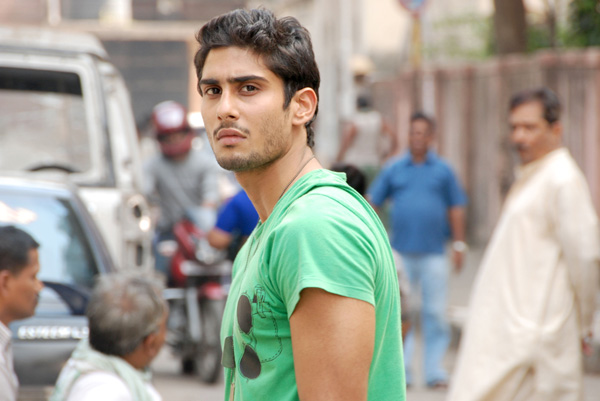|
Reviews of Recent Independent, Foreign, & Documentary Films in Theaters and DVD/Home Video

DHOBI
GHAT (MUMBAI DIARIES)
Four attractive young adults reflect different strands of India’s striving Muslim community in Mumbai, where almost a quarter of the city’s 14 million residents are Muslim. They connect through an apartment that overlooks an old quarter of the city and the repercussions of a one-night stand there. Arun plans to cloister himself in this apartment that seems to be guarded by a silent old lady down the hall. You may be oblivious that Arun is played by Aamir Khan, one of the biggest Bollywood stars (and husband of writer/director Kiran Rao). But you would still be totally gobsmacked by how handsome and charismatic he is, even when playing the passive role of a depressed artist with painter’s block wallowing in the break-up of his marriage. He’s lured out to attend his art gallery opening, crowded with English-speaking intellectuals, and it would be no surprise in any swinging city in the world that he would pick up the lovely Shai (Monica Dogra) for the night (though even indie art-house Indian films are dreamily modest). On sabbatical from her U.S. banking job, she represents a bicultural Indian. She has spent so much of her educational and professional life abroad that she’s almost a foreigner when she’s back home. Shai’s annoyed but claims to be fine when Arun brushes her off the next morning. Later, she crosses paths with a handsome young dhobi (laundry boy), Munna (Prateik, a dynamic scion of Bollywood royalty Smita Patil and Raj Babbar). It’s just one of the sweaty part-time jobs he’s seen laboring at to support his relatives. More than a bit condescendingly, Shai wants Munna’s help with her new side project to photograph the city’s workers. In exchange, he asks her to shoot a portfolio that he can submit to fulfill his dream of becoming a Bollywood star. They embark on a non-tourist’s tour of the economic capital of the country, far less frenetically than Danny Boyle’s Slumdog Millionaire. The couple also tentatively explores a relationship that may blossom over their class divide. But not only does Munna have to deal with a family crisis, he’s mortified when Shai snaps him at his grungiest job—rat killer. (The stills by Jyotika Jain are beautiful.) The two keep bumping into Arun, Shai still hoping to reconnect and Munna becoming jealous. Since Arun’s encounter with Shai, he has become fascinated by the previous tenant, Yasmin (Kriti Malhotra), after he’s discovered a trove of numbered videotapes she made for her brother abroad of her new life in Mumbai. While the opening of the film turns out to have been her documentation of her optimistic arrival in the city, Yasmin reflects the restrictive life of a woman in a more traditional Muslim family. Her touching story inspires Arun to paint her portrait and to move on with his life, into a new apartment that faces the modern city of skyscrapers. The scenes
of small businesses
charmingly anchor the film—from
the laundry dryers up on roofs to the market sellers—and Gustavo Santaolalla’s gorgeous score reflects the city’s ethnic diversity that
might elude American viewers. The romance and regret woven between the
two men and the two women against the striking sights of Mumbai are
slight, but have more poignant realism (especially Munna’s portrayal)
than the hackneyed fairy tales of Bollywood films that dance past all
the obstacles subtly arrayed here.
Nora Lee Mandel
|

